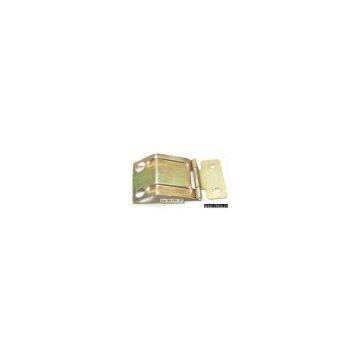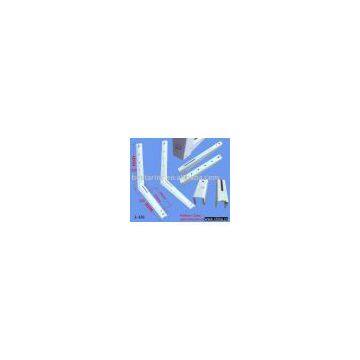Support Bracket Insights & Buyer's Guide
Reimagine your workspace or kitchen with the addition of standard countertop support brackets, which are crucial for both practicality and design. These useful brackets not only assist with the required support for countertops but also improve the visual interest of the place. If you are building or remodeling your kitchen, knowing the importance of support brackets will greatly impact the durability and functionality of your countertops. Learn how these brackets, despite their small size and weight, coupled with industrious design features, will keep your surfaces firmly fastened and protected for many years.
What Are Countertop Support Brackets and Why Do You Need Them?
Understanding the Purpose of Support Brackets
Countertop support brackets assist in the backing and stability for countertops made from metal, wood, or granite. These brackets evenly distribute the weight of the counters, preventing long-term sagging and damage. Sagging, broken counters are an eyesore. These brackets work dynamically whenever there is an overhang in countertops like breakfast bars or kitchen islands, needing extra structural strength and balance. Adding these brackets will allow the counters to stay secure, level, and safe while boosting the beauty of your countertops and home.
How Do Countertop Support Brackets Work?
Support brackets provide stable mounting in a wall or cabinetry, offering a reliable anchor for your countertops. Brackets are usually made from durable materials like steel or aluminum and are often designed to support significant weights, sometimes up to hundreds of pounds. Mounting the brackets involves attaching them with screws to studs or other structural components which ensures a solid grip. When properly outfitted with brackets, countertops can float and provide a sleek, modern appearance while maintaining functionality.
Benefits of Using Heavy-Duty Support Brackets
The best support brackets have a myriad of benefits, making them highly sought after by homeowners and professionals. They are built to last, enduring the severe pressure and weight of heavy countertops. These brackets also come in different styles, from concealed to decorative, which gives flexibility in design and the ability to complement your space. Furthermore, heavy-duty brackets give added reassurance knowing that your countertops are firmly supported, minimizing the risk of accidents or damage.
How to Choose the Right Bracket for Your Countertop?
Factors to Consider: Size, Material, and Design
When selecting a support bracket for your countertop, critical factors such as size, material, and design all come into play. The countertop dimensions determine the support bracket size as well, with 12, 18, and 24 inches common options available for different overhangs. Choosing the right material is also important, as some can be steel or aluminum, which have different strengths and aesthetic values. Last but not least, the bracket design can be standard, custom, or decorative, which will further depend on your style and functionality requirements.
Comparing Aluminum vs. Steel Brackets
Choosing between aluminum and steel brackets requires careful consideration of your project's requirements. Aluminum brackets are resistant to corrosion, making them suitable in regions where humid conditions are prevalent. Steel brackets, however, are more durable, stronger, and do not bend or break under heavy load, which qualifies them as more suited to construction work. Assess both environmental factors and load capacity to make the right choice in materials for your design.
Standard vs. Custom Brackets: Which Is Best for You?
Standard brackets are inexpensive and readily available for most countertop applications, but almost all brackets have a set size and shape. For unusual or more advanced installations, custom-made brackets will most likely be required. Custom brackets are ideal for solving problems that take into consideration exact dimensions, contours, and even shape or design details. Evaluate the professional needs of your project and advise with your chosen specialist if the use of standard or custom-made brackets will yield the most desirable outcome for your case.
How to Install Countertop Support Brackets?
Step-by-Step Guide to Bracket Installation
Installation of countertop support brackets is simple but requires some tools and preparation. Start by measuring for each bracket’s position, taking note that the brackets should be mounted on studs for optimal support. Using the right screws and appropriate hardware, attach the brackets after you have drilled pilot holes on cabinetry or the wall. Before placing the countertop, confirm that each bracket is level and firmly secured. A careful approach brings out success in installation and provides a stable and secure countertop surface.
Essential Tools Needed for Installation
Brackets supporting countertops require installation just like any other shelving brackets, and for this purpose, one must have a drill, a level, measuring tape, screwdrivers, and a stud finder to properly locate the supports in the wall to secure them firmly. Additional sockets, wrenches, or screwdrivers may be used if the bracket design necessitates screw fastening. Having the right tools guarantees a seamless installation and avoids common issues.
Common Mistakes to Avoid During Installation
Avoiding frequent blunders during installation is critical for maintaining the efficacy and durability of your support brackets. A widespread mistake is not anchoring brackets into the required studs, which leads to both instability and a probable failure. Moreover, distortion of spacing or misalignment can lead to uneven distribution of support, which places countertops under strain. Make certain to plan and measure thoroughly. If needed, seek professional guidance to circumvent these traps and achieve your desired results.
What Are the Different Types of Support Brackets Available?
Exploring Various Bracket Designs: Concealed, Floating, and More
Support brackets have different designs that serve their benefits and are useful in decoration too. Brackets concealed offer a minimalist look because they hide the supporting structure, while floating brackets give an illusion of a countertop floating in the air. Other designs usually provide visual interest, such as corbels or decorative brackets, which complement traditional and rustic interiors.
Understanding the Load Capacity: How Much Weight Can They Support?
Support brackets require load-bearing consideration because they can only support a certain amount of weight. This capacity differs with material, the size, as well as the design of brackets, with heavy-duty options supporting hundreds of pounds. While selecting the appropriate support brackets for your countertop, make sure to calculate the expected load of the countertop along with additional load from appliances or decor. Proper load capacity ensures no structural issues arise and prolongs their life.
Specialty Brackets for Granite Countertops and Knee Walls
Some specific applications, such as granite countertops and knee walls, require specialty brackets. Since granite countertops are brittle and heavy, stronger support is needed, which is achieved through heavy-duty brackets. Knee walls that are common in open-concept spaces benefit from brackets that lend structural support without closing off the space. These specialty brackets are designed to resolve the unique difficulties posed by these applications.
Frequently Asked Questions(FAQs)
Q: How do I choose the right countertop brackets for my project?
A: When selecting countertop brackets, consider the weight of your countertop, the material (such as wood or metal), and the desired finish. Heavy-duty options like stainless steel are recommended for supporting heavier surfaces.
Q: Are the screws included with the countertop support brackets?
A: Yes, most countertop support brackets come with screws included for easy installation. Make sure to check the product details to confirm.
Q: Can I use these brackets for a shelf support system?
A: Yes, many countertop brackets can double as shelf support brackets, providing a sturdy and secure mount for shelves in various spaces.
Q: What is the recommended length for countertop brackets?
A: The length of countertop brackets typically ranges from 12 to 24 inches, depending on the size and weight of the countertop. Ensure the bracket extends at least 70% of the countertop's width for optimal support.
Q: Can these brackets support heavy-duty applications?
A: Yes, heavy-duty countertop brackets are designed to support significant weight, making them suitable for heavy-duty applications, including supporting heavy granite countertops.
Q: Can I use countertop brackets for outdoor applications?
A: Yes, stainless steel countertop brackets are ideal for outdoor applications due to their resistance to rust and corrosion, providing a durable and long-lasting solution.
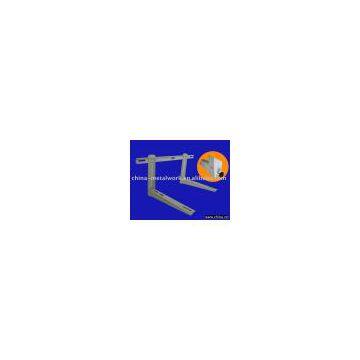 Air Conditioner Support BracketNegotiableMOQ: 1 SetPlace of Origin: ChinaXiamen Newocean Metalwork Co., Ltd.
Air Conditioner Support BracketNegotiableMOQ: 1 SetPlace of Origin: ChinaXiamen Newocean Metalwork Co., Ltd. Wall Mounting Support BracketNegotiableMOQ: 1 PiecePlace of Origin: ChinaXiamen Chino Enterprise Inc
Wall Mounting Support BracketNegotiableMOQ: 1 PiecePlace of Origin: ChinaXiamen Chino Enterprise Inc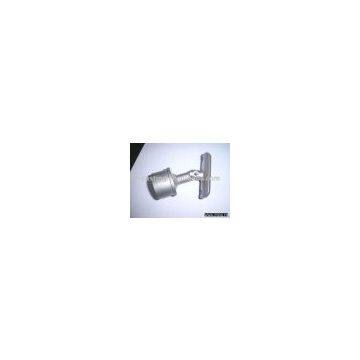 Glass Handrail Support BracketNegotiableMOQ: 1 SetPlace of Origin: ChinaDongying Lianchuang Precision Metal Co., Ltd.
Glass Handrail Support BracketNegotiableMOQ: 1 SetPlace of Origin: ChinaDongying Lianchuang Precision Metal Co., Ltd.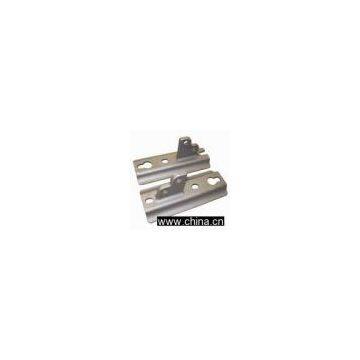 Support, Bracket,metal ProductNegotiableMOQ: 1 SetPlace of Origin: ChinaNanpi Jin Yun Hardware Co., Ltd.
Support, Bracket,metal ProductNegotiableMOQ: 1 SetPlace of Origin: ChinaNanpi Jin Yun Hardware Co., Ltd.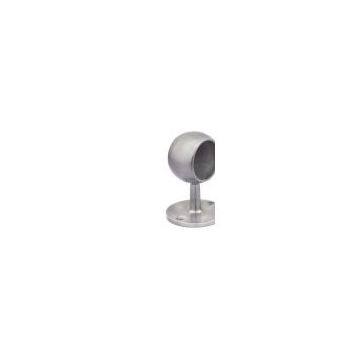 Sell Handrail Support BracketNegotiableMOQ: 10000Brand Name: JSTPlace of Origin: ChinaModel Number: JST100Kunshan JST Industry Co., Ltd
Sell Handrail Support BracketNegotiableMOQ: 10000Brand Name: JSTPlace of Origin: ChinaModel Number: JST100Kunshan JST Industry Co., Ltd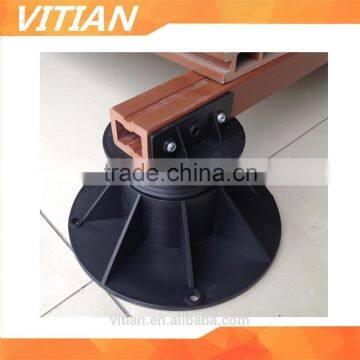 Vitian Plastic Support BracketUS$ 1.8 - 8MOQ: 200 SetsPlace of Origin: Jiangsu, ChinaBrand Name: Vitian, beyondeckModel Number: K75/K90/S110, K-TYPEFlooring Accessories Type: Flooring TrimsJiangsu Vitian Building Material Co., Ltd.
Vitian Plastic Support BracketUS$ 1.8 - 8MOQ: 200 SetsPlace of Origin: Jiangsu, ChinaBrand Name: Vitian, beyondeckModel Number: K75/K90/S110, K-TYPEFlooring Accessories Type: Flooring TrimsJiangsu Vitian Building Material Co., Ltd.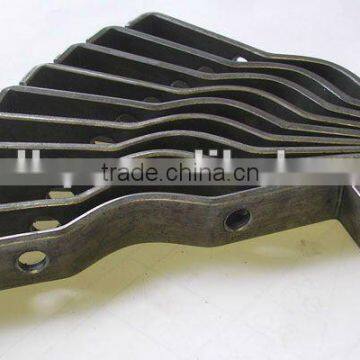 Metal Roofing Support BracketUS$ 0.1 - 10MOQ: 2000 PiecesPlace of Origin: Shandong, ChinaBrand Name: HYModel Number: Metal roofing bracketUsage: IndustrialWulian County Hongyu Machinery Co., Ltd.
Metal Roofing Support BracketUS$ 0.1 - 10MOQ: 2000 PiecesPlace of Origin: Shandong, ChinaBrand Name: HYModel Number: Metal roofing bracketUsage: IndustrialWulian County Hongyu Machinery Co., Ltd.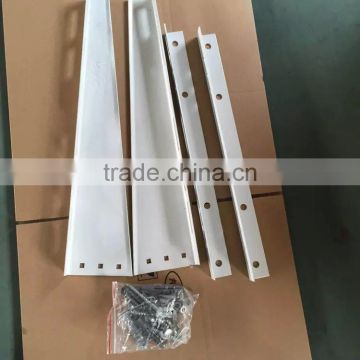 Air Conditioner Support BracketUS$ 2.5 - 6MOQ: 300 SetsPlace of Origin: Hebei, ChinaBrand Name: YSModel Number: YS-02202Usage: Air Conditioner BracketAnping Yuansheng Mesh Co., Ltd.
Air Conditioner Support BracketUS$ 2.5 - 6MOQ: 300 SetsPlace of Origin: Hebei, ChinaBrand Name: YSModel Number: YS-02202Usage: Air Conditioner BracketAnping Yuansheng Mesh Co., Ltd. Plastic Support Bracket MouldNegotiableMOQ: 1 SetPlace of Origin: Fujian, ChinaBrand Name: JielinShaping Mode: Plastic Injection MouldProduct Material: SteelXiamen Jielin Plumbing Co., Ltd.
Plastic Support Bracket MouldNegotiableMOQ: 1 SetPlace of Origin: Fujian, ChinaBrand Name: JielinShaping Mode: Plastic Injection MouldProduct Material: SteelXiamen Jielin Plumbing Co., Ltd.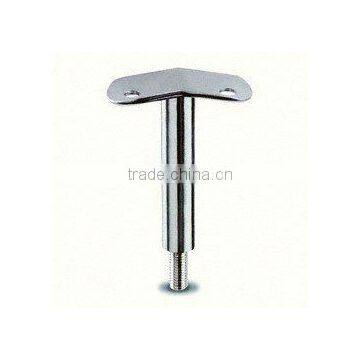 SS Handrail Support BracketNegotiableMOQ: 100 PiecesPlace of Origin: Shandong, ChinaBrand Name: Dual-sourceMaterial: Stainless SteelMounted: WallWeifang City Dual-Source Hardware Products Co., Ltd.
SS Handrail Support BracketNegotiableMOQ: 100 PiecesPlace of Origin: Shandong, ChinaBrand Name: Dual-sourceMaterial: Stainless SteelMounted: WallWeifang City Dual-Source Hardware Products Co., Ltd.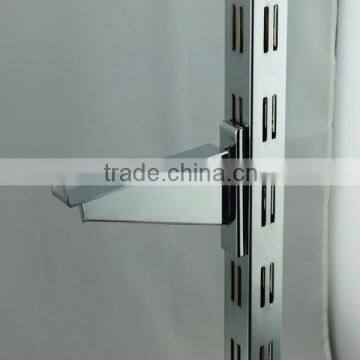 Metal Shelf Support BracketsNegotiableMOQ: 2000 PiecesPlace of Origin: Guangdong, ChinaBrand Name: Fourgood HardwareModel Number: metal shelf support bracketsUsage: Shelf BracketFoshan Sanshui District Fourgood Hardware Co., Ltd.
Metal Shelf Support BracketsNegotiableMOQ: 2000 PiecesPlace of Origin: Guangdong, ChinaBrand Name: Fourgood HardwareModel Number: metal shelf support bracketsUsage: Shelf BracketFoshan Sanshui District Fourgood Hardware Co., Ltd.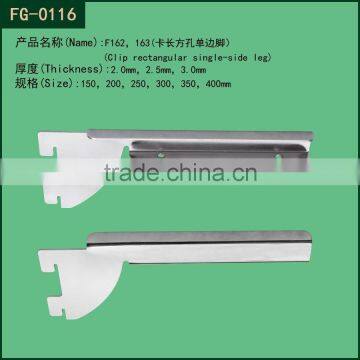 Metal Board Supporting BracketNegotiableMOQ: 200 PiecesPlace of Origin: Guangdong, ChinaBrand Name: FOURGOODModel Number: FG-0116Usage: FurnitureFoshan Sanshui District Fourgood Hardware Co., Ltd.
Metal Board Supporting BracketNegotiableMOQ: 200 PiecesPlace of Origin: Guangdong, ChinaBrand Name: FOURGOODModel Number: FG-0116Usage: FurnitureFoshan Sanshui District Fourgood Hardware Co., Ltd. Pipe Support BracketsUS$ 0.05 - 0.5MOQ: 1000 PiecesPlace of Origin: Guangdong, ChinaBrand Name: cofixUsage: OtherMaterial: MetalZhongshan COFIX Metal Manufacture Co., Ltd.
Pipe Support BracketsUS$ 0.05 - 0.5MOQ: 1000 PiecesPlace of Origin: Guangdong, ChinaBrand Name: cofixUsage: OtherMaterial: MetalZhongshan COFIX Metal Manufacture Co., Ltd. Saddle Support BracketNegotiableMOQ: 1Place of Origin: ChinaModel Number: 530Jiangmen Eurofix Metal And Rubber Products Co., Ltd.
Saddle Support BracketNegotiableMOQ: 1Place of Origin: ChinaModel Number: 530Jiangmen Eurofix Metal And Rubber Products Co., Ltd.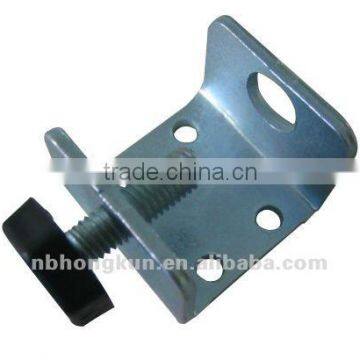 Base Leveler (with Supporting Bracket)NegotiableMOQ: 5000 PiecesPlace of Origin: Zhejiang, ChinaBrand Name: HongkunModel Number: MF006Usage: FurnitureNingbo Yinzhou Qiuai Hongkun Metalwork Factory
Base Leveler (with Supporting Bracket)NegotiableMOQ: 5000 PiecesPlace of Origin: Zhejiang, ChinaBrand Name: HongkunModel Number: MF006Usage: FurnitureNingbo Yinzhou Qiuai Hongkun Metalwork Factory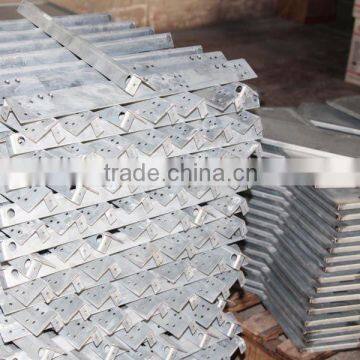 Metal Curtain Support BracketUS$ 0.5 - 20MOQ: 2000 PiecesPlace of Origin: Guangdong, ChinaBrand Name: FuyuanModel Number: Metal bracketUsage: Shelf BracketShenzhen Fuyuan Electric Machinery Equipment Co., Ltd.
Metal Curtain Support BracketUS$ 0.5 - 20MOQ: 2000 PiecesPlace of Origin: Guangdong, ChinaBrand Name: FuyuanModel Number: Metal bracketUsage: Shelf BracketShenzhen Fuyuan Electric Machinery Equipment Co., Ltd.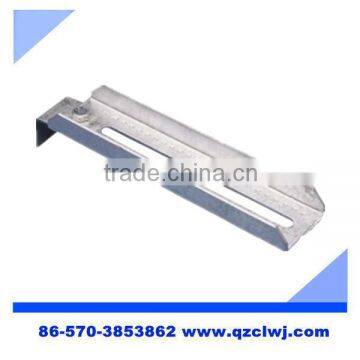 Upright Support BracketUS$ 0.025 - 2.5MOQ: 500 PiecesPlace of Origin: Zhejiang, ChinaBrand Name: OEMModel Number: Upright Support BracketType: Stamping PartsQuzhou Chenlong Hardware Co., Ltd.
Upright Support BracketUS$ 0.025 - 2.5MOQ: 500 PiecesPlace of Origin: Zhejiang, ChinaBrand Name: OEMModel Number: Upright Support BracketType: Stamping PartsQuzhou Chenlong Hardware Co., Ltd. Farm Pipe Support BracketUS$ 1 - 3MOQ: 800 PiecesPlace of Origin: Jiangsu, ChinaBrand Name: XinheModel Number: XFB002Yangzhou Xinhe Metal Factory
Farm Pipe Support BracketUS$ 1 - 3MOQ: 800 PiecesPlace of Origin: Jiangsu, ChinaBrand Name: XinheModel Number: XFB002Yangzhou Xinhe Metal Factory Galvanized Post Support BracketUS$ 1 - 100MOQ: 500 MetersPlace of Origin: Jiangsu, ChinaBrand Name: AnhuaModel Number: STType: Other, cable bracketZhenjiang Ace Electric Co., Ltd.
Galvanized Post Support BracketUS$ 1 - 100MOQ: 500 MetersPlace of Origin: Jiangsu, ChinaBrand Name: AnhuaModel Number: STType: Other, cable bracketZhenjiang Ace Electric Co., Ltd.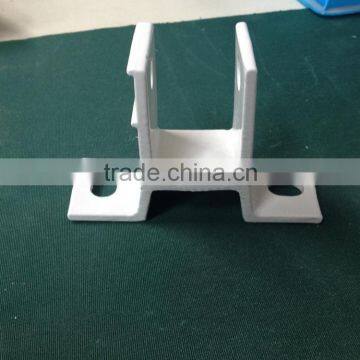 Canopy Support Bracket for SaleUS$ 3 - 8MOQ: 50 PairsPlace of Origin: Zhejiang, ChinaBrand Name: ---Model Number: ---Material: Other, AluminumYongkang Hefly Industry & Trade Co., Ltd.
Canopy Support Bracket for SaleUS$ 3 - 8MOQ: 50 PairsPlace of Origin: Zhejiang, ChinaBrand Name: ---Model Number: ---Material: Other, AluminumYongkang Hefly Industry & Trade Co., Ltd. Rail Foot Support BracketNegotiableMOQ: 100 PiecesPlace of Origin: Shandong, ChinaBrand Name: K-WingMaterial: Stainless SteelMounted: FlooringQingdao K-Wing International Trading Co., Ltd.
Rail Foot Support BracketNegotiableMOQ: 100 PiecesPlace of Origin: Shandong, ChinaBrand Name: K-WingMaterial: Stainless SteelMounted: FlooringQingdao K-Wing International Trading Co., Ltd.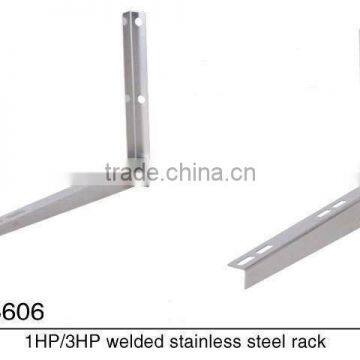 Air Conditioner Support BracketUS$ 4.3 - 4.8MOQ: 200 SetsType: Other, Air Conditioner Parts, Air Conditioning Fitting, Wall-MountedApplication: HomeCertification: Other, RoHSPlace of Origin: Guangdong, ChinaFoshan City Shunde District Changze Metal Products Co., Ltd.
Air Conditioner Support BracketUS$ 4.3 - 4.8MOQ: 200 SetsType: Other, Air Conditioner Parts, Air Conditioning Fitting, Wall-MountedApplication: HomeCertification: Other, RoHSPlace of Origin: Guangdong, ChinaFoshan City Shunde District Changze Metal Products Co., Ltd. Stainless Steel Support BracketsUS$ 4 - 25MOQ: 10 SetsPlace of Origin: Shanghai, ChinaBrand Name: LLModel Number: 893+896+892Usage: Other, Industrial, Guide SupportShanghai Lilai Chain Co., Ltd.
Stainless Steel Support BracketsUS$ 4 - 25MOQ: 10 SetsPlace of Origin: Shanghai, ChinaBrand Name: LLModel Number: 893+896+892Usage: Other, Industrial, Guide SupportShanghai Lilai Chain Co., Ltd. Procurement Lead placed an order for vitian plastic support bracket2025-10-19 10:32:52
Procurement Lead placed an order for vitian plastic support bracket2025-10-19 10:32:52 Purchaser requested a quote for photovoltaic roof support bracket2025-10-22 19:07:08
Purchaser requested a quote for photovoltaic roof support bracket2025-10-22 19:07:08 Business Owner is sourcing Upright Support Bracket2025-10-20 17:29:59
Business Owner is sourcing Upright Support Bracket2025-10-20 17:29:59 Procurement Lead is sourcing Glass handrail support bracket2025-10-23 03:49:33
Procurement Lead is sourcing Glass handrail support bracket2025-10-23 03:49:33 Verified Buyer negotiating terms for Curtain Rod Support Bracket2025-10-21 03:45:33
Verified Buyer negotiating terms for Curtain Rod Support Bracket2025-10-21 03:45:33 Verified Buyer requested a quote for Metal board supporting bracket2025-10-23 00:50:21
Verified Buyer requested a quote for Metal board supporting bracket2025-10-23 00:50:21 Procurement Specialist requested specs for sell handrail support bracket10 hours ago
Procurement Specialist requested specs for sell handrail support bracket10 hours ago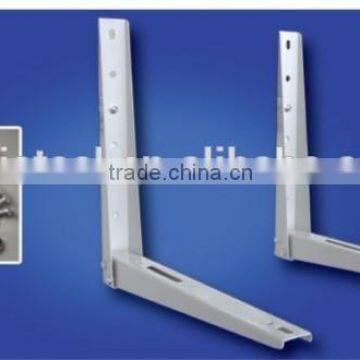 Air Conditioner Support BracketNegotiableMOQ: 5000 PairsCondition: NewPlace of Origin: ChinaCertification: OtherModel Number: ZDA-12P/ZDA-35PZhongshan Xuli Metal Manufacture Co., Ltd.
Air Conditioner Support BracketNegotiableMOQ: 5000 PairsCondition: NewPlace of Origin: ChinaCertification: OtherModel Number: ZDA-12P/ZDA-35PZhongshan Xuli Metal Manufacture Co., Ltd. Metal Support BracketsUS$ 0.01 - 9.99MOQ: 1000 PiecesPlace of Origin: Guangdong, ChinaBrand Name: KF-metal stamping partsModel Number: KFUsage: OtherDongguan Kangfeng Metal Co., Ltd.
Metal Support BracketsUS$ 0.01 - 9.99MOQ: 1000 PiecesPlace of Origin: Guangdong, ChinaBrand Name: KF-metal stamping partsModel Number: KFUsage: OtherDongguan Kangfeng Metal Co., Ltd. Stone Support BracketUS$ 1 - 2.9MOQ: 1000 SetsPlace of Origin: Jiangsu, ChinaBrand Name: GRIModel Number: GL-10Material: Stainless SteelWuxi GRI Construction Engineering Co., Ltd.
Stone Support BracketUS$ 1 - 2.9MOQ: 1000 SetsPlace of Origin: Jiangsu, ChinaBrand Name: GRIModel Number: GL-10Material: Stainless SteelWuxi GRI Construction Engineering Co., Ltd.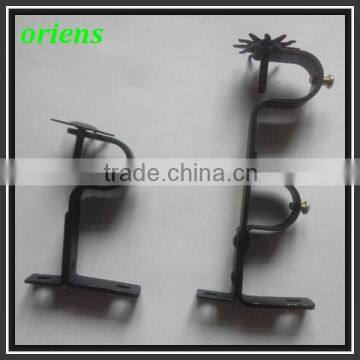 Curtain Rod Support BracketUS$ 0.11 - 5.07MOQ: 100 PiecesPlace of Origin: Hebei, ChinaBrand Name: OriensModel Number: OB-507Usage: IndustrialBeijing Oriens Technology Co., Ltd.
Curtain Rod Support BracketUS$ 0.11 - 5.07MOQ: 100 PiecesPlace of Origin: Hebei, ChinaBrand Name: OriensModel Number: OB-507Usage: IndustrialBeijing Oriens Technology Co., Ltd.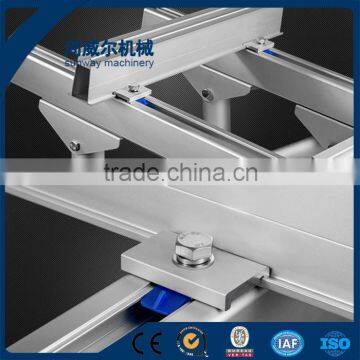 Photovoltaic Roof Support BracketUS$ 500 - 800MOQ: 5 TonsPlace of Origin: Jiangsu, ChinaBrand Name: SWModel Number: Solar System SP5KW SP 10kwSpecification: NormalWuxi Sunway Machinery Co., Ltd.
Photovoltaic Roof Support BracketUS$ 500 - 800MOQ: 5 TonsPlace of Origin: Jiangsu, ChinaBrand Name: SWModel Number: Solar System SP5KW SP 10kwSpecification: NormalWuxi Sunway Machinery Co., Ltd.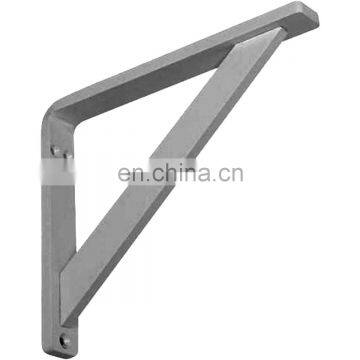 Brackets,metal Support Brackets,Made of Metal - Support BracketsUS$ 0.03 - 6MOQ: 500 PiecesPlace of Origin: Shandong, ChinaBrand Name: NTSModel Number: NTS6632Usage: IndustrialQingdao New Taosheng Metal Products Co., Ltd.
Brackets,metal Support Brackets,Made of Metal - Support BracketsUS$ 0.03 - 6MOQ: 500 PiecesPlace of Origin: Shandong, ChinaBrand Name: NTSModel Number: NTS6632Usage: IndustrialQingdao New Taosheng Metal Products Co., Ltd.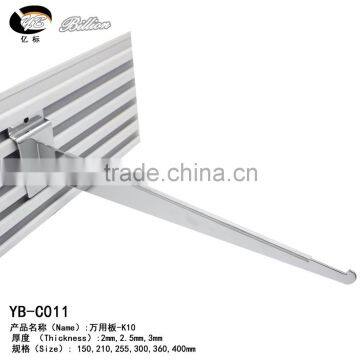 China Factory Glass Support Bracket Metal Shelf Brackets Support BracketsUS$ 0.03 - 0.29MOQ: 500 PiecesPlace of Origin: Zhejiang, ChinaBrand Name: Billion DisplayModel Number: YB-C011Yiwu Billion Standard Display Equipment Factory
China Factory Glass Support Bracket Metal Shelf Brackets Support BracketsUS$ 0.03 - 0.29MOQ: 500 PiecesPlace of Origin: Zhejiang, ChinaBrand Name: Billion DisplayModel Number: YB-C011Yiwu Billion Standard Display Equipment Factory

